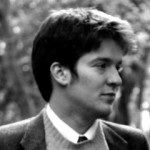Nat Zorach
St. Louis, Missouri

NAT M. ZORACH – A native of Lancaster, Pennsylvania, Nat studied German literature and urban theory at Grinnell College in Iowa and worked in business incubation and economic development before he was invited to St. Louis in the fall of 2010 to help manage projects for Rebuild Foundation, where he assisted in securing upwards of $20,000 in grant funding during his residency as Rebuild established itself as a community player in local arts and development work. Now doing business as The Handbuilt City, an investment cooperative, Nat is working on two renovation projects based on a Pan-Rust Belt vision for social enterprise, sustainable architecture, creative investment strategies, and community education. A pilot project is training an apprentice in finish carpentry and building trades, while Handbuilt works to raise awareness about civic topics of local import. Nat lives on Hyde Park in a house that he has been rehabbing.
Presentation(s):
Empty Space as Common Ground: Open/Closed and Deliberative Innovation
Day 2 / Apr, 13 @ 10:30 am
1st Floor : Room A
Open/Closed is the middle ground between the extremes; it is the collective efforts of St. Louis residents envisioning collaborative solutions for empowerment. As an annual summit, Open/Closed strives to facilitate thoughtful, open conversation about population flight, disinvestment, and vacancy. As a civic organization, Open/Closed engages uncommon partners to link the emergent results of community-oriented creativity, enterprise, and policy. They are helping develop infrastructure for lateral civic thinking that will unsettle the most durable presumptions about the urban fabric. Unsatisfied by proclamations of population growth and conventional economic development, Open/Closed recognizes the potential for artists, entrepreneurs, advocates, neighbors, and leaders to learn through iteration, engage on contested issues, and acknowledge the multiplicity of forms. Open/Closed is a creative enterprise because the animated civil society, ultimately, is the crafting of the possible. St. Louis, Detroit, Cleveland, Youngstown, and Pittsburgh are human places. Crafted by people, dismantled by people, and, hopefully, remade by them, we have been instructed to revile the chaos, disorder, and collapse of our past. In contrast, Open/Closed imagines this biography as our defining attribute. The organizers lionize not the possibility to rewrite these cities into creative, political or social legibility, but to enhance our literacies to the existing city and its diversity of practices. This panel will help tell this story, but it will surely be incomplete, an incompleteness that should inspire all creative practitioners to find all the possible authors.





